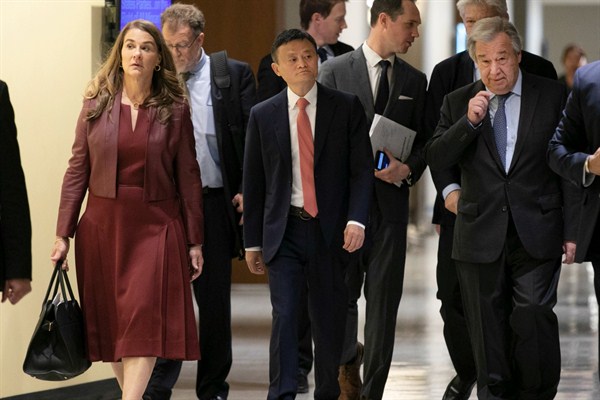Eleven months ago, with little fanfare, U.N. Secretary-General Antonio Guterres appointed a High-Level Panel on Digital Cooperation, co-chaired by Melinda Gates of the eponymous Bill and Melinda Gates Foundation and Jack Ma, founder of Chinese e-commerce giant Alibaba. Guterres assigned the group of 22 luminaries a daunting task: to figure out how to maximize the benefits and minimize the harms to humanity posed by the digital revolution. Last week, the panel delivered its conclusions in a report on “The Age of Digital Interdependence.” Unfortunately, the panel’s findings are apt to fall on deaf ears as the world grows more divided over questions of digital innovation and openness.
The sweeping report underlines technology’s profound potential to better humanity in a host of ways. This will only happen, however, if governments, corporations and civil society jointly “address the societal, ethical, legal, and economic impacts of digital technologies.” The panel identifies several gaps and risks in current trends. These include a widening digital divide between the haves and the have-nots, both within and across countries; the disruptive impacts of the automation revolution on employment; the introduction of bias through reliance on artificial intelligence; the loss of individual data privacy to giant corporations and national governments; the emergence of surveillance societies and a loss of data privacy by consumers; the degradation of social trust in an era of fake news and “deepfakes,” the sophisticated but fabricated videos and photos made using artificial intelligence software; and the development of autonomous weapons systems untethered to human decision-making.
Addressing these shortcomings and vulnerabilities requires more than just a renewed multilateralism, the panel insists. It necessitates a rewired, all-encompassing “multistakeholder-ism” uniting governments, civil society, academics, technologists and the private sector. “While only governments can make laws,” the panel explains, other actors are needed “to assess the complex and dynamic impacts of digital technologies and develop shared norms, standards, and practices.”

